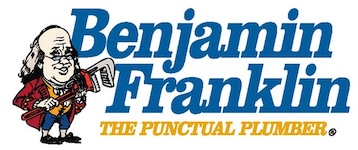Clogged drains are a common problem in homes and businesses, causing inconvenience and plumbing challenges. Knowing the causes of drain blockages is essential for prevention and quick solutions. In this blog post, we’ll examine the common reasons for clogged drains and how to address them.

Human and Animal Hair
A major cause of drain clogs is the buildup of human and animal hair. Hair often combines with grease and soap residue in showers, bathtubs, and sinks, creating a dense mass that blocks water flow. This issue is common in households with pets and residents who engage in outdoor activities that increase the amount of hair and dirt entering your drains.
Flushable Wipes and Hygiene Products
Although labeled as flushable, these wipes pose a serious risk to plumbing systems. The term can be misleading as it only means the wipes can pass through your toilet. Once in the drain lines, they can trap other debris, leading to stubborn blockages. Additionally, most hygiene products are not biodegradable and should be disposed of properly instead of flushed or washed down the drain.
Grease, Oil, and Fat
Many people mistakenly believe grease and oil can be safely washed down the kitchen sink with hot water. However, as these substances cool, they solidify and cause major blockages in residential and commercial plumbing. To prevent clogs, it’s important to dispose of grease and oil in the trash instead of pouring them down the drain.
Hard Water Buildup
Hard water can lead to serious plumbing problems. Over time, minerals in hard water build up in pipes, restricting water flow and increasing the likelihood of clogs. This issue is particularly concerning in older plumbing systems, which may already be narrowed from years of use.
Foreign Objects
Drains will handle human waste, water, and biodegradable toilet paper. However, plumbers often discover a variety of foreign objects in residential and commercial plumbing systems. Items like toys, cat litter, and large food scraps do not break down and can quickly cause blockages.
Solutions and Preventative Measures
Knowing what can and cannot be safely washed or flushed away is important when tackling drain clogs. Regular maintenance, like using drain strainers to catch hair and debris, can greatly reduce the chances of clogs. Grease, oil, and fat should be disposed of in the trash or a grease disposal system instead of pouring them down the sink.
Benjamin Franklin Plumbing of Central Austin has the experience and tools to handle even the toughest clogs, keeping your plumbing system in excellent condition. Call us at (512) 524-3443 or fill out our contact form to schedule an appointment.
